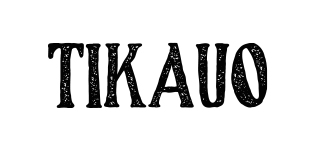Distribution Channels and Ethical businesses
Share
Forbes posted this article back in Nov 2018. A interesting survey conducted by Futerra with over 1000 consumers across US and UK. This article defines the challenges put forward by customers - key one being the brands are not helping them move to a sustainable model because its making the products more expensive when its a sustainable range.

Business is indeed a numbers game, no doubt about that, but there should be an element to business where we need to provide the right thing a customer needs in-order to make a better change for the future. There are brands who buy clothes from Indian designers and sell them in UK market for 5 times the actual cost. And they call themselves ethical brands? Sustainable, Ethical, Organic, Eco-friendly etc are the new powerful marketing tools. Brands tend to monetise using these keywords. How is it ethical when you are buying a product and selling that 5 times its original cost price when the actual artisan(not the designer) get just a 3rd of the margin? How is it ethical when you are adding 5 times mark up and sell it to your customer?
Another key point is the distribution network - after talking to couple of independent brands - they said that one of the key reasons they have to increase their price is because they need to get their products to the public through the distribution channel. Thats the B2B market( business to business) where there is commission at every stage. Nothing new, it’s been there and successfully running since decades.
One of the brand shared their story with us. Let’s say brand A (keeping it anonymous) reached out to retailer B hoping that they would stock A's product in store. A was happy to offer a 40% off the retail price so that A will still be able to sell their products at the right price to their customer and make a decent profit and also the retailer B will be able to make a 40% margin from the sales. This is best case scenario, where the brand, the customer and the retailer is happy. But the retailer suggested that the brand A need to come via a distributor X for them to stock A.
As they speak 4 years after this, they still don’t know why the retailer suggested that. So this is how it works, in-order for the brand A to be onboarded with the distributor X, the brand has to offer a 40% margin(for the retailer B) + a 25 % distributor commission on top. This squeezes the margin from the brand A leaving them with just two choices. One to not go with distribution channel, but then none of the retailers would want to stock them and that means less reach to potential customers. Two would be to increase the price of the product so that it passes through the distribution channel without taking a hit on the profits and still making it through to the customers. Being an ethical brand, they struggled to convince the retailers and distributors that this is purely against the Ethos of their brand. But finally(a ray of hope), they made through to a distributor who charged only 10% commission and who only works with ethical retailers who are happy to charge 30%.
Social media is a powerful marketing tool. A brand can self establish themselves, but it takes time with constantly changing algorithms and features which comes with social media. Brands are working hard to get the customers attention, it’s a time consuming process. But there is hope. Educate your customer, make them understand what is the right thing. Is Organic Cotton really a sustainable alternative to Cotton(give it a go on google)?
Tikauo focusses primarily on educating the customers and help them move to a more sustainable living model. Our Recycled Cotton, Recycled PET home furnishing range includes Cushions, Seat Pads, Wash Bags and Tote Bags are available online through various ethical market places and can be shipped to UK and worldwide. We have pledged to plant a tree for every product sold through our website.
Also a key question to ask here is , do we need a change in strategies with these age old distribution models? How can new online ethical market places help out or make them competitive for even B2B? How the retailers need to adapt and accept these new independent brands who pledge to put customers, sustainability in front than just running behind business models? Only future will tell.
